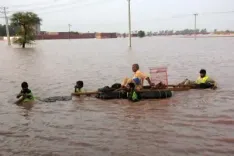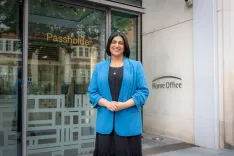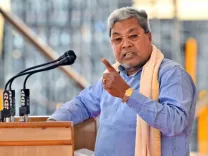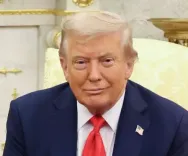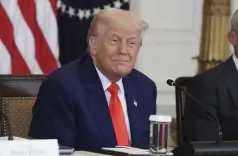Has Pakistan’s Minister’s Admission Exposed Its Role in Global Terrorism?
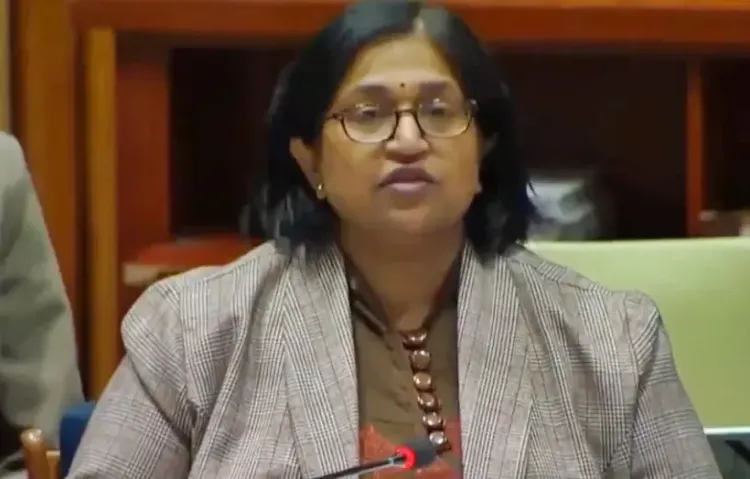
Synopsis
Key Takeaways
- Pakistan’s Defence Minister admitted to supporting terrorist organizations.
- India’s response highlighted the need for international accountability.
- VoTAN was launched to support victims of terrorism globally.
- Recent attacks have raised concerns about terrorism in South Asia.
- The Pahalgam massacre is a reminder of the ongoing threat of terrorism.
United Nations, April 29 (NationPress) Pakistan’s status as a “rogue state contributing to global terrorism” has been starkly highlighted by an open admission from its Defence Minister Khawaja Asif, according to India's Deputy Permanent Representative Yojna Patel. In her remarks on Monday, Patel referenced Asif's recent interview with Sky News, stating that “the entire world has heard him acknowledging Pakistan's history of supporting, training, and financially backing terrorist organizations.”
“This candid admission does not surprise anyone and reveals Pakistan as a rogue state fueling global terrorism and destabilizing the region,” she emphasized. “The world can no longer ignore this reality.”
Patel's comments came in response to a veiled critique from a Pakistani diplomat during the launch of the Victims of Terrorism Associations Network (VoTAN). “It is regrettable that a specific delegation has chosen this platform to engage in propaganda and make unfounded allegations against India,” she noted.
In the Sky News interview, Asif was questioned about Pakistan's long-standing involvement in “backing, supporting, training, and funding” terrorist groups. He openly acknowledged this history but attempted to shift some of the blame onto the West, referencing joint operations in support of Islamic factions fighting the Soviet Union in Afghanistan over 36 years ago.
“For the past three decades, we have been undertaking this dirty work for the US, the West, and the UK,”
he claimed, despite the fact that the West has not funded attacks against India.
Previously, Jawad Ajmal, a counselor at the Pakistan Mission, claimed that Pakistan “has credible evidence” implicating regional adversaries in the terrorist attack by the Baloch Liberation Army on a passenger train. While he did not name India directly, his statements echoed assertions made by Pakistan's military spokesperson, Lt Gen Ahmad Sharif Chaudhury, who alleged that India has financed the Baloch Liberation Army, responsible for the train attack last month.
Ajmal also expressed concern over a recent terrorist attack on tourists in Pahalgam, extending condolences to the victims' families, while insinuating that the incident occurred in “Indian Illegally Occupied Jammu and Kashmir.” The Pahalgam massacre, claimed by a front organization of the Pakistan-based Lashkar-e-Taiba known as the Resistance Front, resulted in 26 fatalities. Ajmal stated that Pakistan, as an elected member of the Security Council, joined other nations in condemning this attack.
The UN Office of Counter-Terrorism initiated the VoTAN to unite victims of terrorism, their associations, and civil society groups, forming a global network for support. Patel remarked that “the robust, unequivocal support and solidarity extended by leaders and governments worldwide” following the Pahalgam attack “is a testament to the international community’s zero tolerance for terrorism.” She noted that this attack resulted in the highest number of civilian casualties since the devastating 26/11 Mumbai attacks in 2008.
“Having suffered from cross-border terrorism for decades, India fully understands the enduring effects such acts have on victims, their families, and society,”
she concluded.

